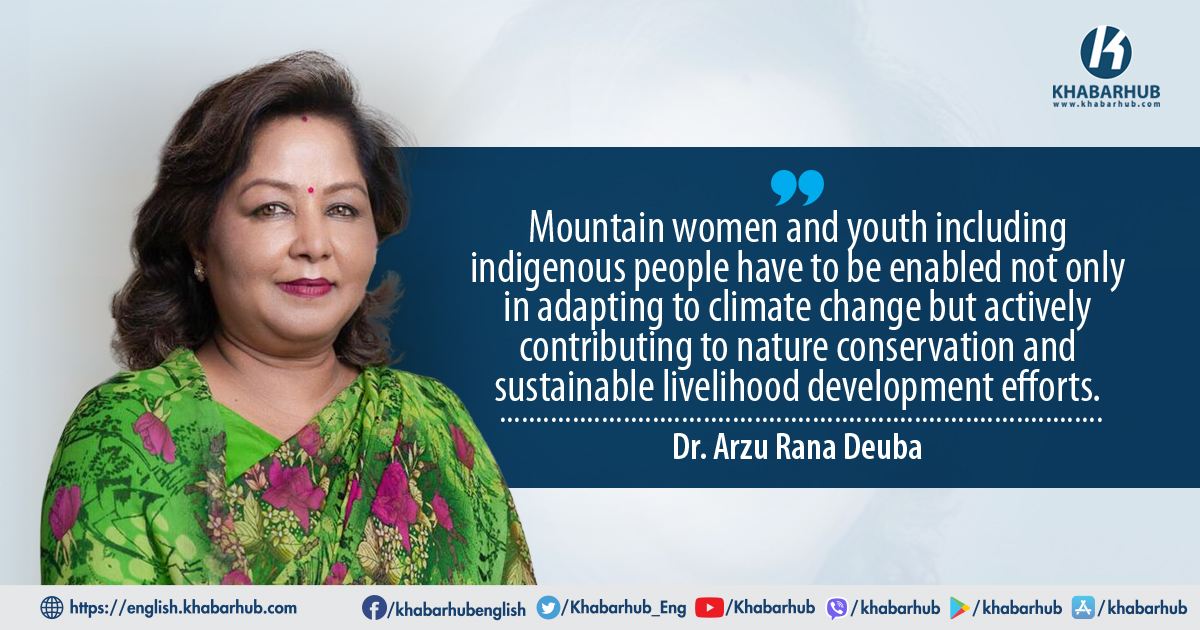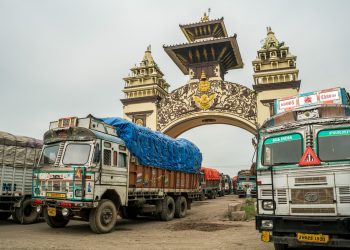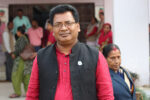Climate Justice, Equity, and Local voices with a focus on Gender and Youth are profoundly important in the international expert dialogue on Mountains, People and Climate Change.
The theme “Mountain Solutions: Common Grounds and Common Understanding” implies that common problems needs collective action.
My thoughts on the topic are based on my personal convictions, reflections and realities of climate crisis in which the most vulnerable Mountain communities especially women and youth are the least prepared and resourced to cope with.
The context of vulnerability becomes doubly important in the context of Himalayan Mountains characterized by marginality, fragility and sensitivity.
In such a context, the topics of justice, equity and local voices are interconnected, and need to be addressed in an integrated, holistic and synergistic manner avoiding trade-offs as much as possible.
To me, personally, climate change, gender inequality, and gender injustice are interwoven challenges that demand urgent attention to build resilience of mountain communities and ecosystems they depend on for their livelihood.
Gender Equality and Climate Action: Scientists, experts and global leaders including the UN Secretary General have made it amply clear that without immediate, accelerated and transformative climate action with inclusive leadership and sustained collective actions, the global climate change battle cannot be fought and won.
The best available science and the latest IPCC reports indicate that the current pace of actions will not meet the 1.5 degrees Celsius increment temperature capping goal of the Paris Agreement which is critical for the survival of mountain communities.
This below 2 degrees Celsius goal also will not be met without gender equality and the full contribution of women and youth.
Added to this is the growing impact of climate change on their lives and income. This affects everything from tourism, agriculture, education of children and health, to drinking water supply.
Women and youth comprise more than two thirds of global population – and in mountains regions even more.
They provide adaptive, resilient and scalable solutions to address the existential threats brought about by climate change especially in the mountains.
We have seen in both developed and developing countries where there are more women in leadership, the labor force, and agriculture and natural resources management, both the development and climate actions are of better quality.
The Role of Women in Mountain Environment: It is clear that the Himalayan mountain region agriculture and natural resources management is not possible without women’s leadership, their hard work and exceptional resilience.
Due to increased male youth migration, the women and girls have no choice but to take up the mantle to fight various existential crises among which climate change is only one. Poverty, hunger, pollution, pandemics, failure of harvest, land degradation and biodiversity loss are other persistent crisis.
The recently released SDG progress report by the UN clearly states that under current trend of progress, it will take 140 years to achieve equal representation of women in leadership role and 300 years to achieve gender equality.
Obviously in mountains, achieving these goals will take many more years. In the meantime, climate change risk in the mountains is at the tipping point.
At the current rate of temperature rise – with every subsequent year becoming warmer than previous year, the Himalayan high mountains are experiencing irreversible and permanent change in snow and ice cover, permafrost melting, biodiversity loss and disaster scenario due to climate induced hazards including the risk posed by GLOF phenomena.
Therefore, the need to provide women, equal rights and youth the motivation and resources to join in the battle to fight climate change as Greta Thunberg and her thousands of followers are doing globally is not only necessary but urgent and compulsory.
Challenges and Opportunities in Achieving Gender Justice
While taking up the issue of climate related gender justice in the mountain context, the role of Mountain Women needs to be recognized the most.
To me they are the ‘unsung heroes in the Climate Battle’ in the Mountains.
From the rugged terrains of the Himalayas to the enchanting and challenging landscape of the Andes, women and girls in mountain communities play a crucial role in sustaining lives and livelihoods in difficult, harsh and risky lands that are becoming further challenging due to the growing hazards and risks posed by climate change.
Women are the protectors of the land, biodiversity, and traditional knowledge. While men often migrate to urban centers in search of work, women remain behind, managing the workload at home, tending to families, and overseeing mountain farms and small-scale businesses.
In Nepal, where authors have highlighted the issues of feminization of agriculture and forestry their roles as farmers, forest users, market sellers, businesswomen, artisans, entrepreneurs, and community leaders position them to contribute significantly to innovate and provide nature based and human co-created climate change adaptation, mitigation and disaster risk reduction related solutions.
However, mountain women, poor, indigenous peoples and other disadvantaged groups face common challenges.
They are among the world’s poorest and most marginalized.
Social inequalities, gender discrimination, and traditional hierarchies hinder mountain women’s and girls’ progress.
They often lack basic rights, access to credit, education, social protection, technology and information.
Efforts should focus on promoting empowerment, recognizing the critical role mountain women play in sustainable mountain development, and ensuring their collective voices are heard and considered in decision making.
Their participation in household decisions is limited, let alone broader community decisions.
Women represent nearly 50% of the rural agricultural workforce in low-income countries, yet more than 70% of them still face discrimination.
They encounter additional barriers in their work compared to men.
Added to this is the growing impact of climate change on their lives and income. This affects everything from tourism, agriculture, education of children and health, to drinking water supply.
Mountain Women and Youth as Agents of Change This year’s International Mountain Day, highlighted how “women move mountains” to protect this vital part of our environment.
Mountain women sustain social, economic, and environmental development in mountain areas.
A recently published report titled ‘Mountain Women of the World: Challenges, Resilience, and Collective Power’ sheds light on the diverse challenges faced by mountain women across different territories.
Produced jointly by FAO, the Mountain Partnership, and the Feminist Hiking Collective, it emphasizes the resilience and collective power of these women.
I strongly believe that empowering Mountain Women by providing easy access to and benefit sharing from economic resources can provide replicable, scalable and sustainable solutions not only fight climate battle but also, other crises.
Mountain women and youth including indigenous people have to be enabled not only in adapting to climate change but actively contributing to nature conservation and sustainable livelihood development efforts.
This way women and youth power can be harnessed to make them a driving force against hunger, malnutrition, the climate crisis, and rural poverty.
Therefore, efforts should focus on promoting empowerment, recognizing the critical role mountain women play in sustainable mountain development, and ensuring their collective voices are heard and considered in decision making.
Efforts required include collaborative policy making, creation of accessible instruments with funds and technology.
Mountain women, marginalized groups and youth collectively can be a force to bring about sustainable conflict management, disaster responses, pandemic management, socio-economic solutions, and climate action.
Mechanisms and forums to listen and respond to growing youth voices are crucial to come up with sustainable climate solutions.
After all, we all have to ensure that we currently live in a world livable for them in the future.
They represent the future and advocate for intergenerational justice.
Climate change affects young people disproportionately, especially in harsh mountain regions and their activism and collective power have to drive the change they want.
Therefore, let us listen to youth leaders who inspire us to take bold action.
Similarly listening to the voice of local communities is critical as they are on the front lines of climate impacts.
Their voices and continuous engagement matter a lot. Indigenous knowledge, traditional practices, and local innovations contribute to build climate resilience.
The time has come to document and strategize responses to the negative impacts of climate change at all levels of government.
Similarly, we need to collectively work on the following:
- To develop a framework within which mountain countries collaborate with mountain specialized global and regional agencies in order to understand better the changes occurring in mountains and comprehend the challenges they face.
- To advocate for better action to reduce the risk and build resilient mountain communities.
- To maintain the vital mountain-based ecosystem services for the welfare of the billions of people living downstream.
- To further better communication of the anticipated impacts of climate change in mountains to global communities within the ongoing UN Framework Convention on Climate Change (UNFCCC) negotiations.
- To bring all the major mountainous countries, HKH, Andean, Alpine, Pamir and Atlas regions on board for meaningful support, and to ensure solidarity to enable Alliance to achieve the goal of securing global attention and support to the mountain ecosystems and mountain populations.
- To document and analyze climate change scenarios and impacts in mountains and highlands, gather best practices and information about local knowledge and to propose options available in the preparatory meetings of Multilateral Environmental Agreements (MEA), Subsidiary Bodies (SBI) and Subsidiary Body for Scientific and Technological Advice (SBSTA) leading up to the final agreement.
- To include such outcome in the form of a resolution on specific climate related instruments, mechanisms and program for mountains that might then be included in the legally binding agreements under the UNFCCC and/or other Multilateral Environmental Agreements (MEAs).
Conclusion
In conclusion, mountain women and youth including indigenous people have to be enabled not only in adapting to climate change but actively contributing to nature conservation and sustainable livelihood development efforts.
Their resilience, collective power, and determination make them indispensable in the fight against climate challenges.
I call upon all the participants and larger mountain leaders and experts to support these unsung heroes and harness their immense energy for a more sustainable future. In closing, gender climate justice requires gender equality, empowerment, capacity building, youth engagement, and acknowledgement and use of traditional and local wisdom.
Let us work together to build a sustainable, equitable future for all mountain people.
(This opinion is based on the speech given by Dr. Arzu Rana Deuba, Chairperson, Parliamentary committee on Agriculture, Cooperatives and Natural Resources and Member of Parliament Chair, at the , International Expert Dialogue on Mountains, People and Climate Change)









Comment